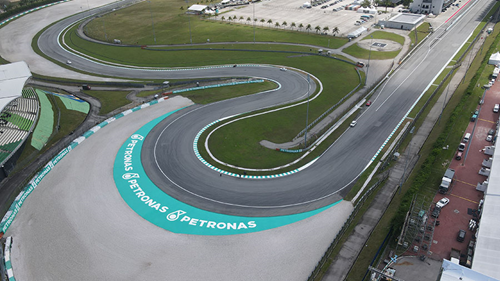

High expectations for a rapidly growing country
Mapei Malaysia has achieved significant results in many market segments thanks to a number of initiatives dedicated to production, sustainability and human resources
Mapei Malaysia, active since 1992, has emerged as a key player in the country's construction market through strategic investments in production, sustainability, and human resources. Contributing to the infrastructure, residential, healthcare, and industrial sectors, the company is addressing the growing needs of a dynamic economy. Mapei Malaysia is expanding its production capacity with a second plant in Johor, reinforcing its role as a hub for Southeast Asia. Sustainability, training, and community engagement are cornerstones of its growth.
Malaysia's economy is one of the most dynamic in Southeast Asia. In 2024, the country grew by 4.9%. What is the outlook for the construction market?
The construction sector is expected to remain a key driver of the Malaysian economy and a major employer in the coming years. As of December 2024, it recorded a workforce of some 1.1 million registered workers. The outlook for the Malaysian construction sector remains bullish.
Which construction sectors are the most interesting and promising for Mapei solutions and products? And what are the product lines that Mapei is focusing on?
Infrastructure projects and residential construction have been and will continue to be major sectors of the Malaysia construction industry in the years to come. The government’s strategic focus on infrastructure projects is aimed at boosting other sectors of our economy by enhancing connectivity, reducing operational costs and attracting further investments. The current infrastructure projects of note are:
- Mutiara light rail transit system line in Penang: This project was taken over by the federal government and construction will be divided into three phases with the first segment connecting Silicon Island to Komtar. The groundbreaking ceremony was conducted in January 2025 and it is expected to be operational by 2031.
- East Coast Rail Link (ECRL): The ECRL project connecting Port Klang to Kota Bahru, is progressing ahead of schedule, with about 80% completed as of January 2025. The railway will enhance connectivity between the east and west coasts of Peninsular Malaysia and facilitate both passenger and freight transport. An anticipated benefit of this project is the birth of new development centers along the route.

Is the hospital sector part of Mapei Malaysia's expansion plans?
Mapei Malaysia is now producing adhesives of the Ultrabond Eco line to install flooring materials at our manufacturing plant in Nilai. Although our resilients product line is the main focus in this segment, we have the advantage of being able to offer project designers a whole range of solutions from roof-to-floor when it comes to new constructions.
Malaysia has shown in recent years a great ability to attract foreign investment. Are there plans in Mapei Malaysia's plans to strengthen its presence?
The Mapei Group’s confidence in the Malaysian market and its commitment to the country’s long term growth prospects can be seen in its investment in the modern plant and warehouse in Nilai which started production in 2015. Mapei Malaysia’s impressive growth since then has necessitated the construction of an even bigger facility in the state of Johor. Work has started and the plant is expected to be operational by year 2026.
Can Mapei Malaysia become a hub for the production and distribution of Mapei products in Southeast Asia?
Yes, Mapei Malaysia is already a hub for the production and distribution of Mapei products to the Southeast Asia markets as well as some countries in the wider Asia-Pacific region. In order to further expand our supply capacity, our upcoming second plant is expected to be operational by mid 2026. It will serve not only the domestic growth in Malaysia but also strengthen our operations hub in Malaysia to cater to exports markets in the region. The new plant will also cater to intercompany demands from Mapei Group’s subsidiaries in Singapore, Australia, New Zealand, the Philippines, Vietnam, Indonesia and Hong Kong.
For a country that is constantly expanding, a priority is the search for skilled human capital, but it often has to deal, instead, with a shortage of specialized figures. What is Mapei Malaysia doing about this?
We need the 3P’s - People, Process and Product - to grow any business. With increasing competition in the jobs market for skilled people in a growing market, it’s essential that we have a robust system in place to retain and attract the right talents. We have a multi-pronged approach to this challenge:
- Develop a culture of active engagement where we encourage our people to connect, communicate and collaborate so that we function better as a team. At the same time, we believe that this promotes a happier work environment.
- We encourage our people to challenge themselves and set goals for continual personal improvement.
- We invest in training programs for development of soft skills such as people management and leadership.
We provide technical training so that our team members develop competence and expertise in attending to customer needs. For example, instead of just equipping them with facts about products, we help them to understand the fundamental principles of, say, waterproofing, so that in their consultations with project professionals, they’re able to identify the customer’s need and establish the selection criteria before proposing the appropriate and best solution.
What initiatives does Mapei Malaysia dedicate to architects?
Architects are very important stakeholders in our business value chain. We serve this community with a dedicated specification team along with support from the Marketing and Sales teams. We are the preferred solution providers in selected segments of applications. We engage heavily with PAM (Malaysian Institute of Architects) which is active nationwide. We work with them across the nation by presenting our technologies during seminars on a regular basis. We have been supporting the archidex exhibition consistently where PAM is the one of the organisers. We also engage with architectural firms separately by conducting “Lunch & Learn” events in their respective offices and focusing on specific product line technologies or special project needs. We also organize Mapei sport and cultural events and invite architects with all other stakeholders to engage them informally to enhance our branding & visibility.
Malaysia is a very young country: 50 % of Malaysia's 34 million people are under 25 years old. What are the problems but also the opportunities, for example in terms of housing needs, for a company like Mapei?
The growing population of young Malaysians increase demand for housing at two levels:
- As they start their own families, they move out from their parents and look for places to buy or rent.
- As they grow in their careers, they look for upgrades in their housing conditions, typically larger units with sports and recreational facilities.
Sustainability is an increasingly decisive element in the success of companies operating in the construction sector. How does Mapei Malaysia's commitment to sustainability shape up?
We also extend this to other stakeholders to showcase Mapei’s commitment and demonstrate how our technologies can help them achieve their sustainability goals. A few examples to share: CUBE System and Re-Con line for the concrete industry: we actively promoted them by speaking in seminars organised by the National Ready Mix Concrete Association (NRMCA) and the American Concrete Institute (ACI). Concrete mix designs with low-clinker composite cements are now the new trend in the industry, and our technologies can offer significant sustainability benefits.
Our C-ADD line solutions for cement admixtures are helping to increase the sustainability of the industry by increasing the limestone content and producing cements using fly ash and slag, or Portland Limestone Cement (PLC) as a replacement for Ordinary Portland Cement (OPC). The recent launch of our Zero line with fully offset residual emissions of CO2 line emphasizes our commitment to sustainability. We also conduct campaigns during Earth Day (April 22nd).
Since May 2024 a photovoltaic system with a capacity of 296.01 kWp has been fully operational on the roofs of our manufacturing plant in Nilai.

From foundation to leadership in Malaysia's construction industry
Mapei Malaysia was founded in 1992, initially employing a staff of 6 and becoming operational in 1994.In 2001, the subsidiary set up a production plant in Rawang to produce powder products for installing ceramic and stone materials, liquid products and grinding aids for cement. In 2013 construction began on a new plant in Nilai. Completed in December 2014, the facility was then expanded in 2018 with new product storage spaces and currently houses all Mapei Malaysia's production activities. Mr Seow Aik Guan (pictured on the right) was the General Manager for Mapei Malaysia from 2010-2023. His visionary leadership has established a talented team and cemented MapeI’s brand in Malaysian construction Industry. The company is currently building a new production unit in the state of Johor.
Proof of Mapei's success are the many prestigious projects it has been involved such as the Klang Valley Mass Rapid Transit lines, the Sepang Petronas International Circuit, and Kuala Lumpur International Airport 2.

An active member of the community
Mapei Malaysia is member of the local community with active involvement in social responsibility projects related to sports, culture as well as contributions to deserving community. Mapei has been a sponsor for the celebration of Italian Republic Day hosted by the Consulate General of Italy for a few years. The event, which in 2024 was held at the Mandarin Oriental in Kuala Lumpur, aims to underline the strong diplomatic and cultural ties between Italy.
Mapei Malaysia is also very active in the sporting sphere: it regularly organizes sports events such as non-competitive cycling and running races. In addition, on 30th November, 2024, the subsidiary organized the "Mapei Pickleball Challenge" for the first time on pickleball courts in Kuala Lumpur completed a few months earlier with solutions from the Mapecoat TNS range. The event was attended by 50 sportsmen and women who were able to appreciate the high performance of the sports surfaces made with Mapei products.
Mapei Malaysia shows commitment to social responsibility and concern for the community in which it operates. The company donated some molds made from recycled mortar residues and Ultracolor Plus grout to Sri Eden, a center that educates kids and teens with autism or learning or behavioral difficulties, to enable these young students to take part in a worskhop on the art of mosaic. The mosaics thus created were put on sale to finance new activities of the association. The company also sponsored numerous projects related to school buildings over the years with materials and technical support for SMK Jalan Bukit & SRK Bukit Pantai, SRJK Yuk Chai and others.
Active participation and presence in targeted exhibitions and events
From 4th to 6th June, Mapei Malaysia took part in APHM, an exhibition dedicated to healthcare in Kuala Lumpur, where the company showcased its solutions for the installation of resilient floorings together with systems for waterproofing and acoustic insulation.
Mapei Malaysia participated in Semicon, one of the largest electronics and semiconductor industry exhibitions in Asia, held from 28th to 30th May in Kuala Lumpur, and Asiawater, that took place in the Malaysian capital from 23rd to 25th April. On the last occasion, Mapei Malaysia showed its solutions that can contribute to the construction, protection and rehabilitation of facilities used for water management and wastewater treatment.
The subsidiary was also a sponsor of the Civil and Structural Engineering Symposium (SiKAS), held on 6th-7th August 2024 in Kuala Lumpur and attended by around 400 professionals, aimed to promote knowledge of technological innovations in civil and structural engineering.

















